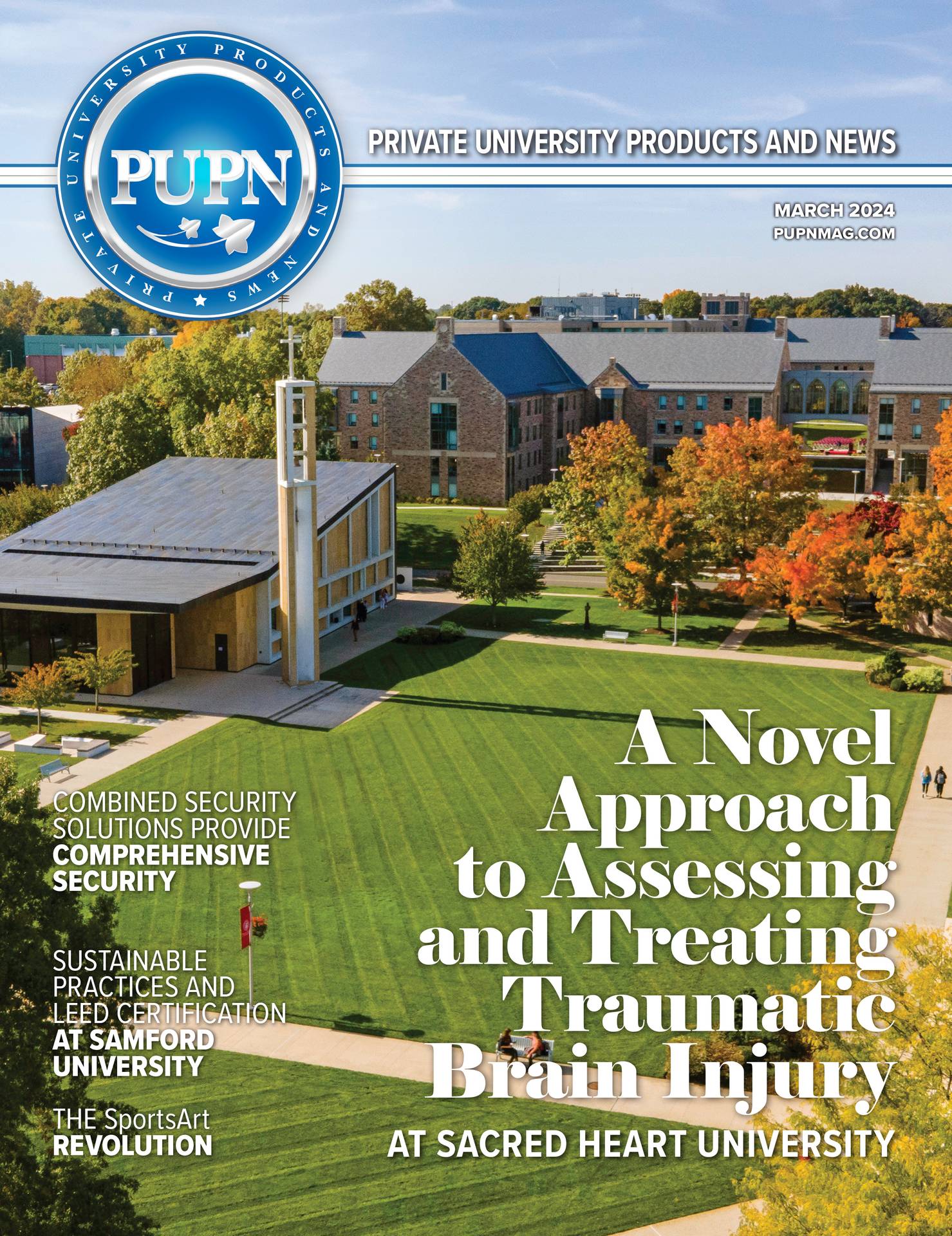Houghton worked as a Research Analyst at the Strategic Assessment Center, co-founded the Terrorism Research Center, and was the director of research at the Memorial Institute for the Prevention of Terrorism in Oklahoma City. He continues to work with the U.S. government while sharing his knowledge and experiences with the students of Brigham Young University – Hawaii.
Preparing On-Campus and Beyond
Dr. John K. Tsukayama, now a BYU-Hawaii colleague, first met Dr. Brian Houghton in 2007, when Tsukayama was a non-traditional student in the process of determining if finishing his undergraduate degree at BYU-Hawaii was the best choice. Houghton was supportive of Tsukayama’s plan to attend graduate school at the University of St. Andrews to explore Terrorism Studies, and Houghton’s expertise and experience offered Tsukayama the confidence to later pursue additional degrees in Scotland.
As a student of Houghton’s, Tsukayama discovered the exact model for the type of educator he hoped to become one day—lively and enthusiastic, an instructor who “brings a no-nonsense, real-world expectations-based approach to education.” In addition to noting how students enjoy Houghton’s sense of humor, Tsukayama also praises the counter-terrorism expert for the clever and clear ways he shows students how their work in the classroom is preparing them for the work employers will expect from them. He adds, “His having worked with the federal government and in a high-level terrorism research position provides him with plenty of authority that many professors with purely ivory-tower experiences lack.”
Just three years ago, Tsukayama joined the university as a part-time instructor in the Political Science department, where he was instantly and warmly welcomed by Houghton as a colleague. Just as he did as an instructor, Houghton generously shares his time, advice, and guidance to new faculty members, serving again as a mentor where he has offered Tsukayama “sound advice on dealing with such tricky situations as possible student plagiarism and how to bring out the best from students who struggle to speak and read English.”
As they both teach the Introduction to Terrorism course that Houghton pioneered at BYU-Hawaii, Tsukayama appreciates the “innovative curriculum” his colleague has designed—which includes students grouped into Red-Hat teams where they learn by researching potential terrorist groups and studying tactics they might employ to attack targets. “This has led over the years to numerous interesting projects,” Tsukayama adds. The second half of the assignment folds outward into a White-Hat assignment, where students consider how hypothetical attack scenarios could be prevented by sound strategies for anti-terrorism. He shares, “Many students have told me that this kind of experiential learning has been among their best group projects they’ve done in college.”
As a member of the campus community, Houghton is also highly involved. Tsukayama notes that Houghton recently facilitated a three-hour joint panel discussion that covered preparation and response to a hypothetical active-shooting scenario. The panel brought together local representatives from emergency medical services, theT by Rachel Clevenger fire department, and the police department with members of campus who could most benefit from participating in the panel discussion: administration, campus security, counseling services, communications, and the health center. He notes, “Brian’s crisis and disaster management expertise helped to ensure that the university community learned a lot about what can be done today, and what additional preparations need to be done in the future.”
Inspiring Paths
Sharon de Oliveira met Houghton in her first semester, and she recalls having no idea what she wanted to do. She ended up in one of Houghton’s International Relations courses purely by chance, but she was soon inspired by his passion and knowledge. “I wanted to feel like that too,” she states.
There was a specific moment early in the semester, when Houghton was talking about international theories, and she had what she calls “my little nerd moment,” where she realized, “This is awesome.” She left that classroom and declared a major. In addition to Houghton serving as her academic mentor, de Oliveira was touched by Houghton’s attention and concern when her fiancé was dealing with a serious illness, noting that he genuinely cared about what she was facing in her personal life.
Houghton has also served as a mentor to Jarek Buss, since Buss took Houghton’s international relations class during his first semester. Buss notes he’s rarely had a semester go by without enrolling in one of his classes or working as his TA. Buss explains that Houghton’s experience and passion for the subject inspired his direction for a master’s program in security policy studies. Like de Oliveira, Buss also notes that it was the time and attention outside of the classroom that meant the most. Explaining that Houghton regularly invited him into his office to discuss his plans and offer advice, he states that when he felt a “little lost on campus and in life” that Houghton advised him to go to China, where he could develop that language skill and be ahead in his career path.
Not only did Houghton advise Buss on that course of action, but he also took the steps to make sure Buss knew exactly how to make that plan a reality, helping him prepare and apply for a NSEP Boren scholarship that would fund a year in China for a national security work commitment. Afterwards, Houghton has continued to help Buss plan for internships, graduate school, and his subsequent career. Buss notes, “Without him I would be just a kid from Wyoming with dreams of a government career but no concrete idea of exactly how to make it happen.”
Buss adds that this level of commitment is consistent, across the board, with Houghton. He knows many of Houghton’s students who have altered their career plans after taking one of his classes, and who are helped in meaningful and profound ways by his leadership. Houghton notes that mentoring students is one of the favorite parts of his job. He tells them upfront that he expects all students to distinguish themselves in some way while they are there at BYU-Hawaii; he explains it’s not enough anymore just to earn a degree. Thus, he encourages practicums, internships, and volunteer work—anything that helps them stand out from their competition.
Changing Latitude
In addition to Houghton’s talent and skill as an educator and his dedication to his academic community, Tsukayama also notes that Houghton is devoted to his family and the larger community around the university. In addition to serving on the local Community Emergency Response Team— and passing on that knowledge through his course in Crisis Management and Disaster Management—he is also the chief Boy Scout leader in the district.
Though he enjoys his teaching immensely, Houghton also looks forward to summer vacations with his wife Caryn and their children where they visit extended family on the mainland. Tsukayama shares, “I know that one of his favorite experiences a few years ago was a road-trip that took the Houghton clan from the West Coast clear across to Washington DC as part of his sabbatical leave. While on sabbatical, Brian was able to take his kids to watch major league baseball, something that is sadly not possible here in Hawaii.”
In fact, those family trips were a big reason for Houghton’s departure from the career trajectory he was on for nearly two decades. He’d had a “passion to make people safer” since his studies in Germany in the early 80s, where terrorist events were regularly taking place. In early ’95, he was studying future warfare; he and his colleagues predicted wars would involve the US fighting small groups of insurgents and realized this was the future of terrorism. After September 11, he notes that it changed the world for him in that the events of that day “made things go faster.”
They needed change to be quicker and more effective. However, the travel involved was both extensive and exhausting. He knew he was making a difference, but he was burning out, and his children were growing up quickly. When a friend told him about a one-year Visiting Professor appointment at BYU-Hawaii, he figured he could do with a small break. He remembers thinking, “I could really use a year just to spend time with family,” but that decision changed his life.
What surprised him most was how much fulfillment came from devoting his substantial energies to the classroom and young students. After six months, he was thinking he might be able to stay a bit longer, and after a year he knew this was the right choice for him and his family. He was also thoroughly invested in his students, young people he found passionate and enthusiastic about learning. Though Hawaii brought a tremendous change in lifestyle and priorities, the move also brought contentment. It helps, of course, that he still consults with Homeland Security and The Department of State, and he still travels occasionally, so he can bring those in-the-field experiences back to share with his students.
An Agent of Counter-Terrorism
One of Houghton’s longtime counter-terrorism colleagues, Patrick Chagnon, met Houghton when they were both part of New Mexico Tech’s First Responder Program. Homeland Security has five consortiums that offer 1st responder programs, and they find subject area experts as instructors; Houghton taught a module on suicide bombing. Chagnon and Houghton worked together for several years, and they were eventually both recruited into an Anti-Terrorism Assistance program.
In February, they piloted a course in Nepal, collaborating on course design for Public Awareness Training in the face of terror. Chagnon notes that their work helps them train international partners, working to “nip it in the bud” before its effects cross US borders. Having only one week to train, he says it’s— surprisingly, perhaps—fairly easy to choose what to focus on, given such limited time. Though any of their subjects would be worthy of a semester of study, Chagnon notes that what they are doing is a “community policing program on steroids.”
Chagnon recalls the words of Sir Robert Peel, noting, “The police are the public and the public are the police.” In short, any effective policing comes from an involved public and leaders who earn cooperation from community members as well. Chagnon notes that, despite Houghton’s background not including traditional law enforcement, he is instantly respected by the law enforcement in the course—in part because his training and academic background are unimpeachable, but also because he has a remarkable ability to connect with an audience. Chagnon calls Houghton “a true gentleman and a true professional in every sense of the word.”










